Top: Bao Chico signed a 25-year mining agreement with the Liberian government in 2022 to mine iron ore in Bomi and Gbarpolu County. The DayLight/Derick Snyder
By Esau J. Farr
COMPOUND-SU JUNCTION, GbarpoluCounty – Last August, Augustine David, a driver of Bao Chico, was ordered to separate culverts for bridge construction in the area without protective gears. A steel rod he was using slipped and crushed the right index finger.
David was taken to the JFK Medical Center in Monrovia that day in August last year. He spent some days at JFK and two months to recover at the Bethesda Medical Center on Somalia Drive outside Monrovia.
“I am traumatized because I was [not] born crippled but I am now crippled,” David said as he held up his palm with the severed finger at Compound-Su Junction.
David is one of several workers at Bao Chico Resources Liberia Limited who have sustained lifetime injuries due to the Chinese firm’s unsafe working environment.
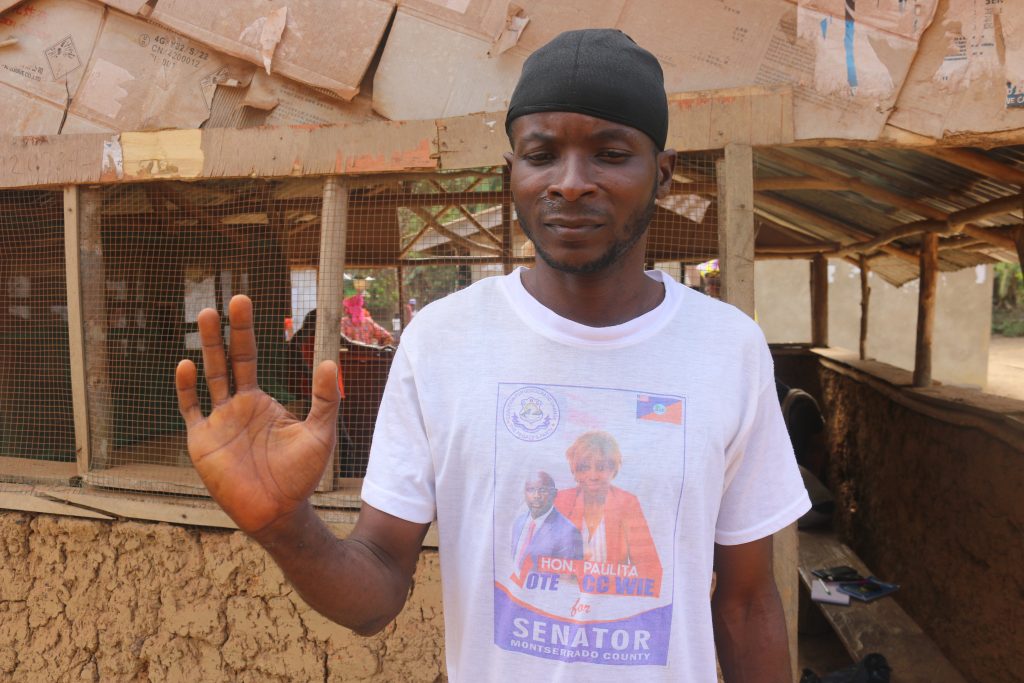
Owned by Zhan Zhen, a giant steel company in China, Bao Chico Resources Liberia Limited signed a 25-year agreement with Liberia in 2022 to mine iron ore, covering 87.4 square kilometers in Bopolu and Suehn Mecca Districts of Gbarpolu and Bomi Counties, respectively.
Its legislation was marred by controversy and its activities marred by protests ever since. Even the Liberian Senate has expressed concern over heightening insecurity relating to working conditions at the concession.
‘I felt bad’
David received US$500 for the loss of his finger from Bao Chico, 100 times his daily rate, in line with the Decent Work Act.
But Bao Chico has not employed David, flouting a memorandum of understanding (MoU) they signed. The document, seen by The DayLight, requires the company to employ him for five years after his recovery. However, five months after his full recovery, he remains a contractor.
“I have [repeatedly protested] and complained to the Labor Commissioner but all in vain,” David said. “Now, I am deciding to hire a lawyer [to plead my case].”
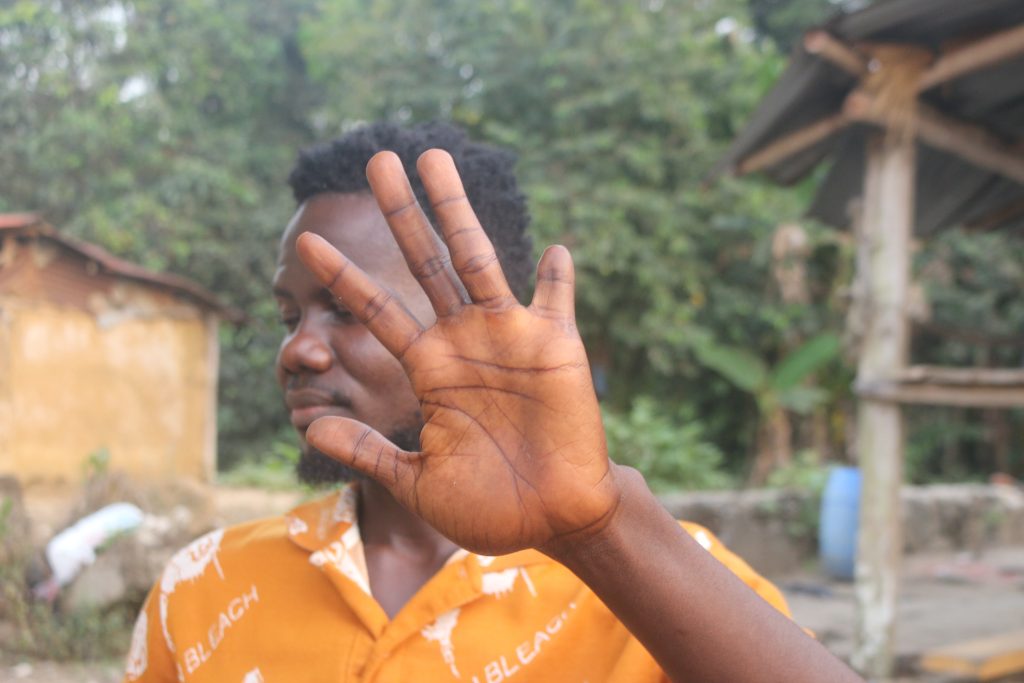
Like David, Momo Kromah of Baabu-Ta also got injured in late June last year after a Bao Chico machine cut off his left little finger.
Kromah worked as a machine assistant to a Chinese worker at Bao Chico. He alleges his Chinese workmate, who had earlier made two similar mistakes that week, caused the accident.
But unlike David, Kromah claims he received no injury benefits but, like David, has also not been employed.
“I felt bad at the time. It hurts [for] a family man to be working and get injured on the job,” Kromah said in a January interview. “I want for labor to [plead] for me so that I can go back to the job and be employed, according to my career.”
Jusu Sumo, Gbarpolu’s Labor Commissioner, knows of the injuries at Bao Chico and enforces the payment of workers’ benefits.
“When it comes to Augustine David’s issue, the management of Bao Chico is saying that they have their bosses that need to come so that their official employment letter can be prepared…,” Sumo said.
Sumo refuted Kromah’s allegation that Bao Chico did not pay him his injury benefits. He said the injured man was still a contractor with the company. He, however, attributed problems with workers’ benefits because of Bao Chico’s lack of a human resource officer.
Kromah’s activities appeared to support Sumo’s comments and contradict Kromah’s assertions three months ago. Kromah sat in a pickup truck with Chinese miners headed to a Bao Chico mine near Compound-Su. He evaded several attempts for a second interview.
Anthony Jackson’s injury was not as severe as David’s and Kromah’s but was bad enough to scar his left foot. A welder with Bao Chico, Jackson sustained the injury after a welding fume melted an improper footgear he wore, suffering a burn to his left foot.
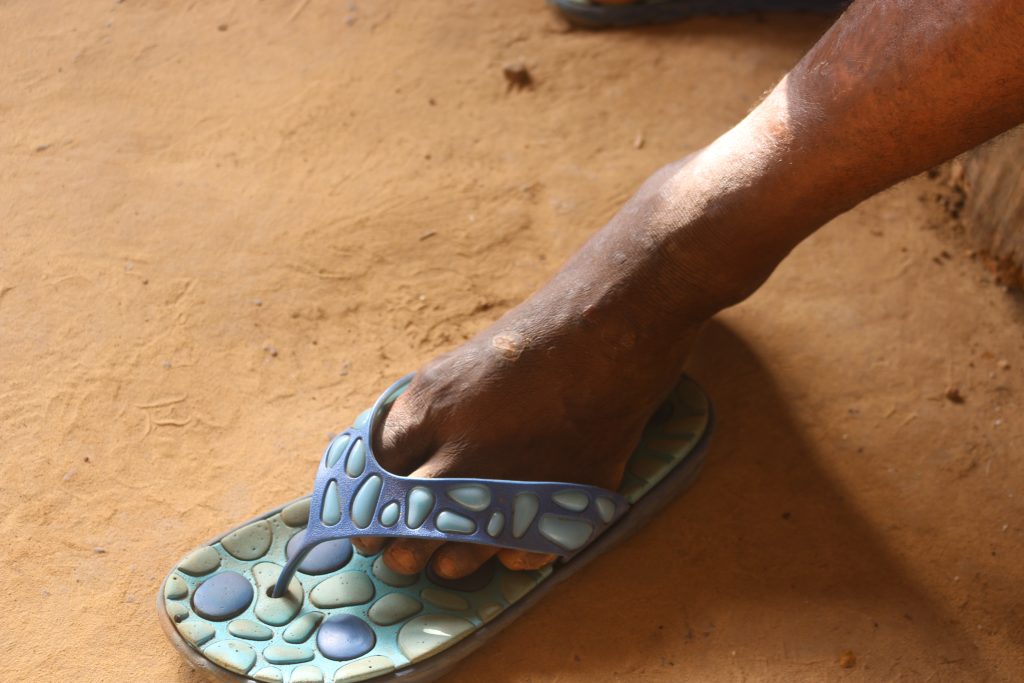
Jackson told The DayLight Bao Chico gave him US$20 for almost four days of work lost because of the January 8 injury although he was being paid US$10 daily.
His ex-workmate Jedrome Biomah, sustained an eye injury due to a damaged goggle. A welding particle passed through the hole in the goggles and fell onto his eye, nearly blinding it.
Boimah, a former welder assistant, said he informed the company about his injury but was downplayed for about a month.
“So, when I was called to sign for my pay, I told them that I could not see anything and that’s how I got their attention,” Boimah told The DayLight.
Boimah took treatment at the JFK for six months, according to hospital documents seen by The DayLight. He alleges that he did not complete the full treatment due to Bao Chico’s failure to foot the bill. He was later dismissed over an alleged fuel theft.
Harris Kollie, a 26-year-old driller, sustained an injury to his neck and stomach. However, his aggressor was not a culvert, a machine, or welding particles. Kollie’s aggressor was a Chinese national.
On January 24, he quarreled with the Chinese man, which turned quickly to insults and then blows. Kollie sustained injuries to his neck and stomach in the ordeal.
A doctor at the Emirates Hospital in Bopolu gave Kollie a prescription, from which he bought medicines that were administered at home.
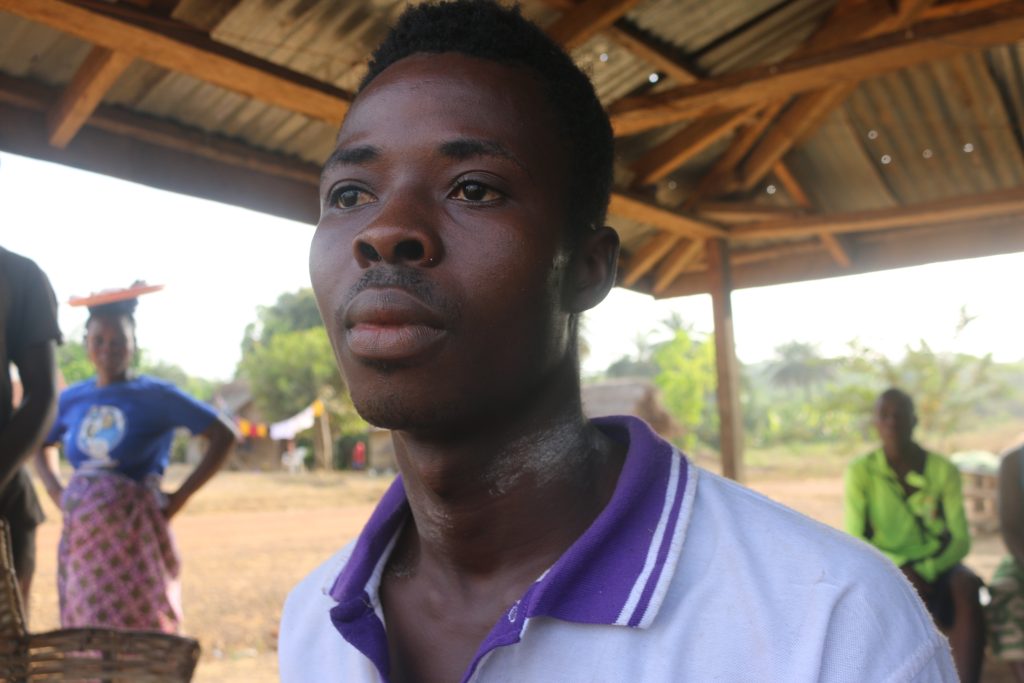
Bao Chico apologized to residents for the incident, according to James Scott, an elder at Compound-Su Junction. However, residents want the Chinese man who beat Kollie out of the community.
‘Relocate us’
Amid workers’ injuries, residents endure Bao Chico’s noise pollution. Everyone The DayLight interviewed had a story from the roaring sound of explosion and rain of rock particles from the nearby mines.
Perhaps, the most infamous victim is Zoe Freeman. A 50-something-year-old woman, Freeman fell off during one of the company’s explosion exercises and was rushed to the Emirates Hospital in Bopolu. Reporters confirmed that information with a healthcare worker who helped care for her.
“I spent two days in the hospital. I didn’t have a sign of hypotension but doctors said it was shock,” Freeman recalled.
But Freeman’s experience has altered the company’s conduct of explosions. Bao Chico now makes announcements for people to evacuate the area before the explosions. The Monrovia-Bopolu and Bomi-Bopolu highways are closed for half an hour under police supervision.
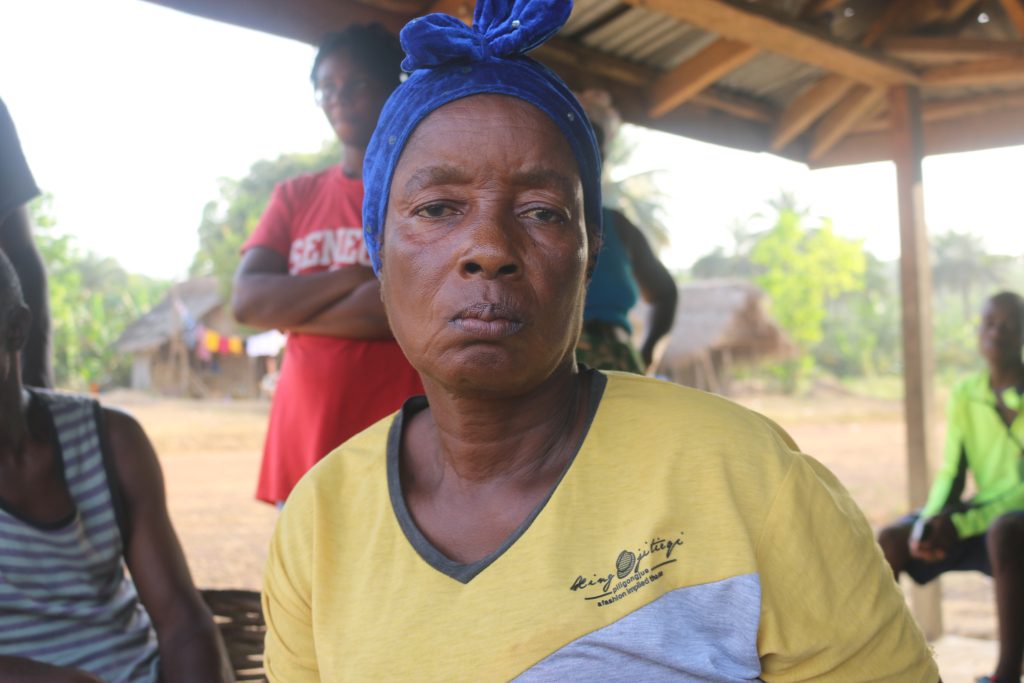
“The surrounding villagers, relevant construction personnel, vehicle and equipment should cooperate to withdraw from the warning range in time,” a January announcement read.
But affected communities say that is not enough. They want to be relocated to prevent any future injuries. They have repeatedly called on Bao Chico to relocate them but the company has not done so.
“We told them to relocate us but they said it can’t be done hurriedly. They have to put some measures into place,” Sampson Lamah, the communities’ spokesman, said.
‘Ministers will be involved’
The injuries at Bao Chico derive from the concessioner’s noncompliance with several levels of workplace safety standards. It lacks a workplace legal framework to secure the safety, health and welfare of employees, a violation of the Decent Work Act of Liberia.
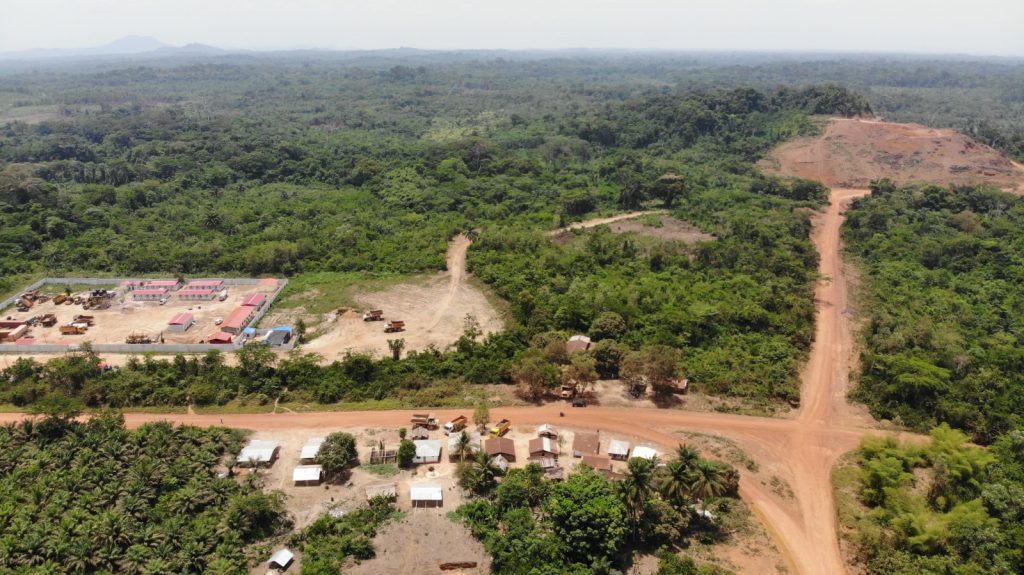
It has violated the law by not establishing a safety and health committee to oversee and address all safety and health needs of workers.
Sumo, the Labor Commissioner, agrees Bao Chico is noncompliant with labor standards.
“It is true that they don’t have [legal framework and established safety and health committee] at all,” Sumo said.
“Workers need to be dressed up properly in protective gear before getting to work to avoid injury,” Sumo added.
“The Labor Ministry will engage Bao Chico on these issues. It has reached to a level now where all of the ministers will be involved and resolve some of these issues”.
Bao Chico’s violation of labor safety standards means it has breached the Minerals and Mining Law of Liberia.
There is no record that Bao Chico drew up its workplace regulations approved by the Ministry of Mines and Energy as required by the law. There is also no record it reported those injuries to the Ministry of Mines, another violation of the law.
Bao Chico did not respond to queries for comments on this story.
The United States Embassy provided funding for this story. The DayLight maintained editorial independence over the story’s content.

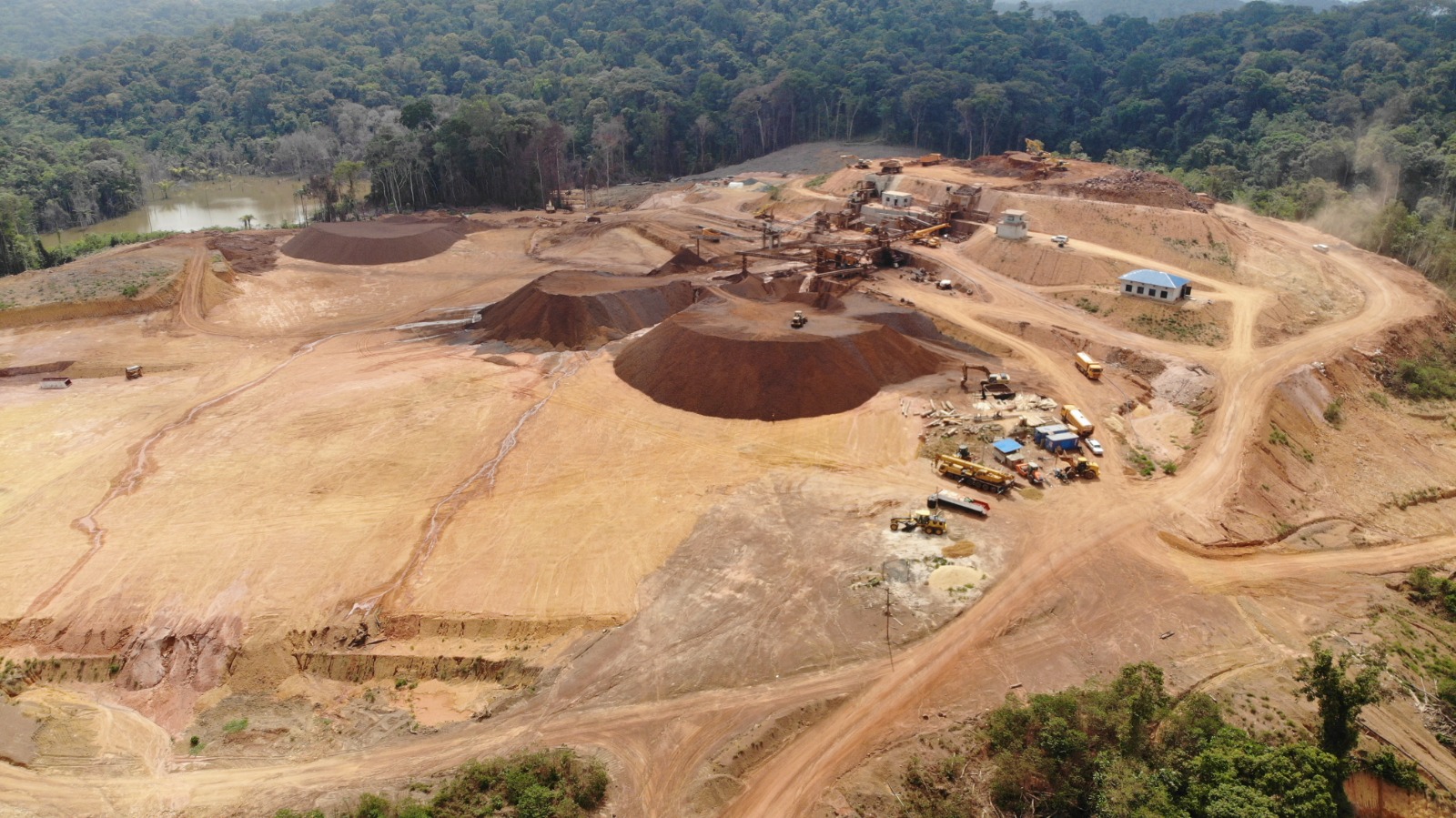

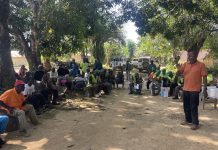

Facebook Comments